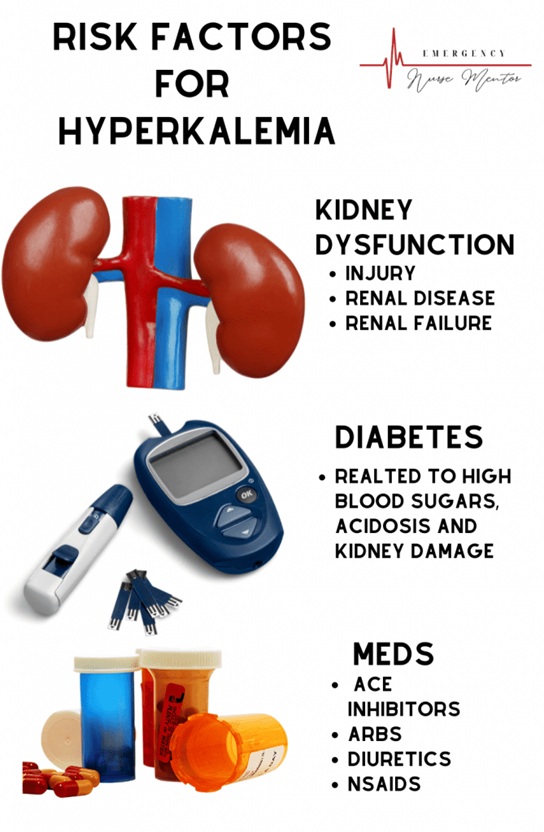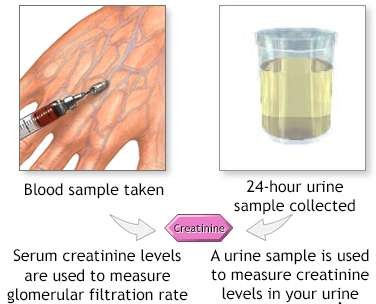A nurse is reviewing the laboratory test results from a client who has prerenal acute kidney injury (AKI). Which of the following electrolyte imbalances should the nurse expect?
Hypernatremia
Hypophosphatemia
Hypercalcemia
Hyperkalemia
The Correct Answer is D
Choice A reason: Hypernatremia, which is an abnormally high level of sodium in the blood, is not typically associated with prerenal AKI. Prerenal AKI is often related to hypovolemia, which can lead to hyponatremia rather than hypernatremia.
Choice B reason: Hypophosphatemia, or low levels of phosphate in the blood, is not a common finding in prerenal AKI. Phosphate levels are more often affected in intrinsic renal diseases or refeeding syndrome.
Choice C reason: Hypercalcemia, or high levels of calcium in the blood, is not commonly seen in prerenal AKI. It is more frequently associated with malignancies or hyperparathyroidism.
Choice D reason: Hyperkalemia, which is an elevated level of potassium in the blood, is a common electrolyte imbalance in prerenal AKI. This occurs due to decreased renal perfusion and the kidney's reduced ability to excrete potassium.

Nursing Test Bank
Naxlex Comprehensive Predictor Exams
Related Questions
Correct Answer is C
Explanation
Choice A reason: Dizziness can be a symptom of DKA due to dehydration; however, it is not as specific as mental status changes.
Choice B reason: Nervousness is not a specific symptom of DKA and can be related to high blood glucose levels rather than DKA itself.
Choice C reason: Mental status changes such as confusion or altered consciousness are significant indicators of DKA and require immediate medical atention.
Choice D reason: Cool, clammy skin is not typically associated with DKA; instead, DKA can present with dry skin and mouth due to dehydration.
Correct Answer is A
Explanation
Choice A reason: The serum creatinine test measures the amount of creatinine in the blood and provides information about kidney function. Normal ranges for serum creatinine levels are 0.74 to 1.35 mg/dL for adult men and 0.59 to
1.04 mg/dL for adult women. This test is a common way to assess renal function and can indicate if the kidneys are not filtering waste effectively.
Choice B reason: While a serum creatinine test can indicate severe renal impairment, it does not diagnose a specific disease. Further testing would be required to determine the presence of a particular renal disease.
Choice C reason: The serum creatinine test does not directly show if medications are affecting kidney function. However, if a patient is on medications known to affect the kidneys, such as certain steroids, changes in creatinine levels can suggest an impact on renal function.
Choice D reason: It is part of the nurse's role to provide information about tests and procedures. Telling a patient to ask the doctor does not offer immediate support or information, which can be important for patient care and understanding.

Whether you are a student looking to ace your exams or a practicing nurse seeking to enhance your expertise , our nursing education contents will empower you with the confidence and competence to make a difference in the lives of patients and become a respected leader in the healthcare field.
Visit Naxlex, invest in your future and unlock endless possibilities with our unparalleled nursing education contents today
Report Wrong Answer on the Current Question
Do you disagree with the answer? If yes, what is your expected answer? Explain.
Kindly be descriptive with the issue you are facing.
